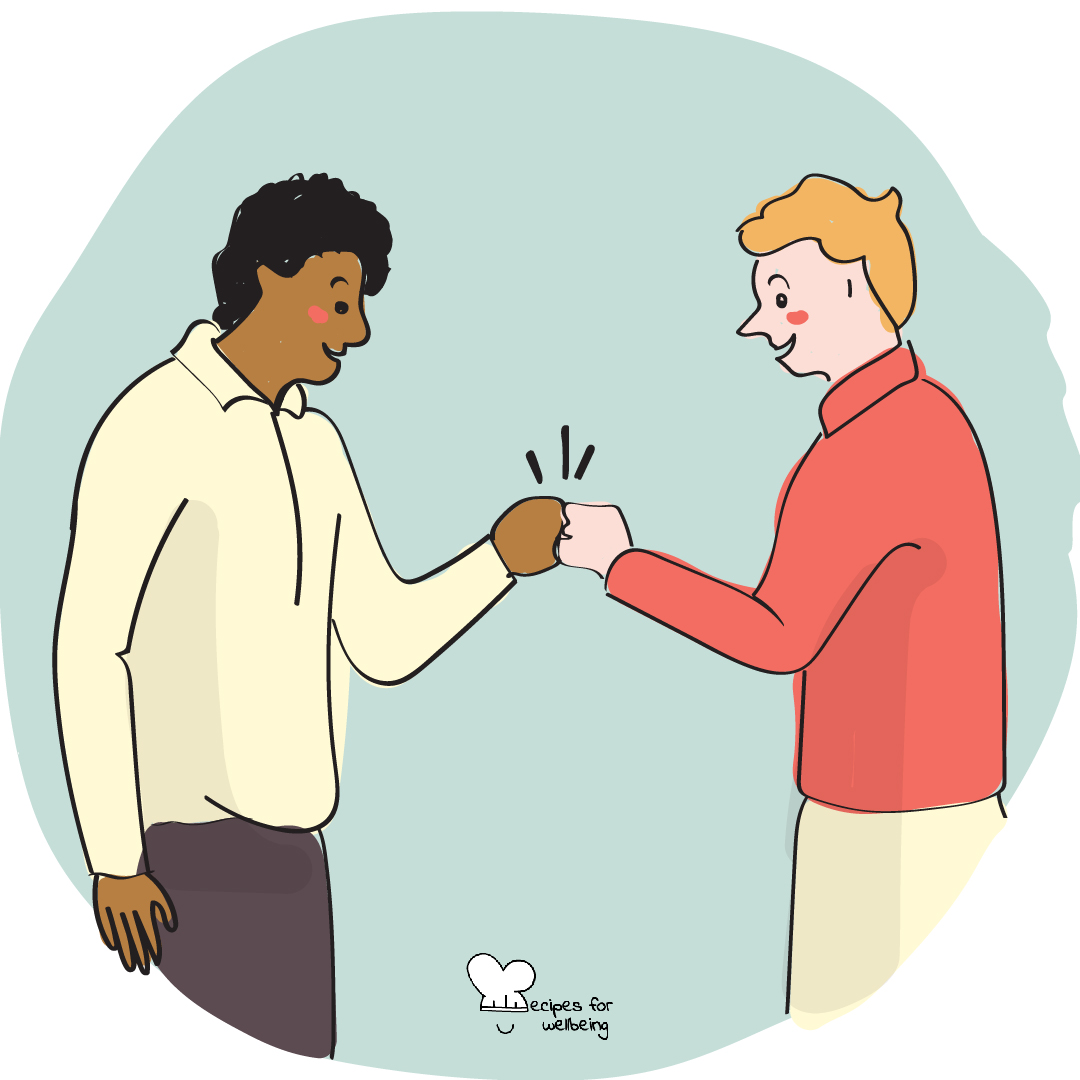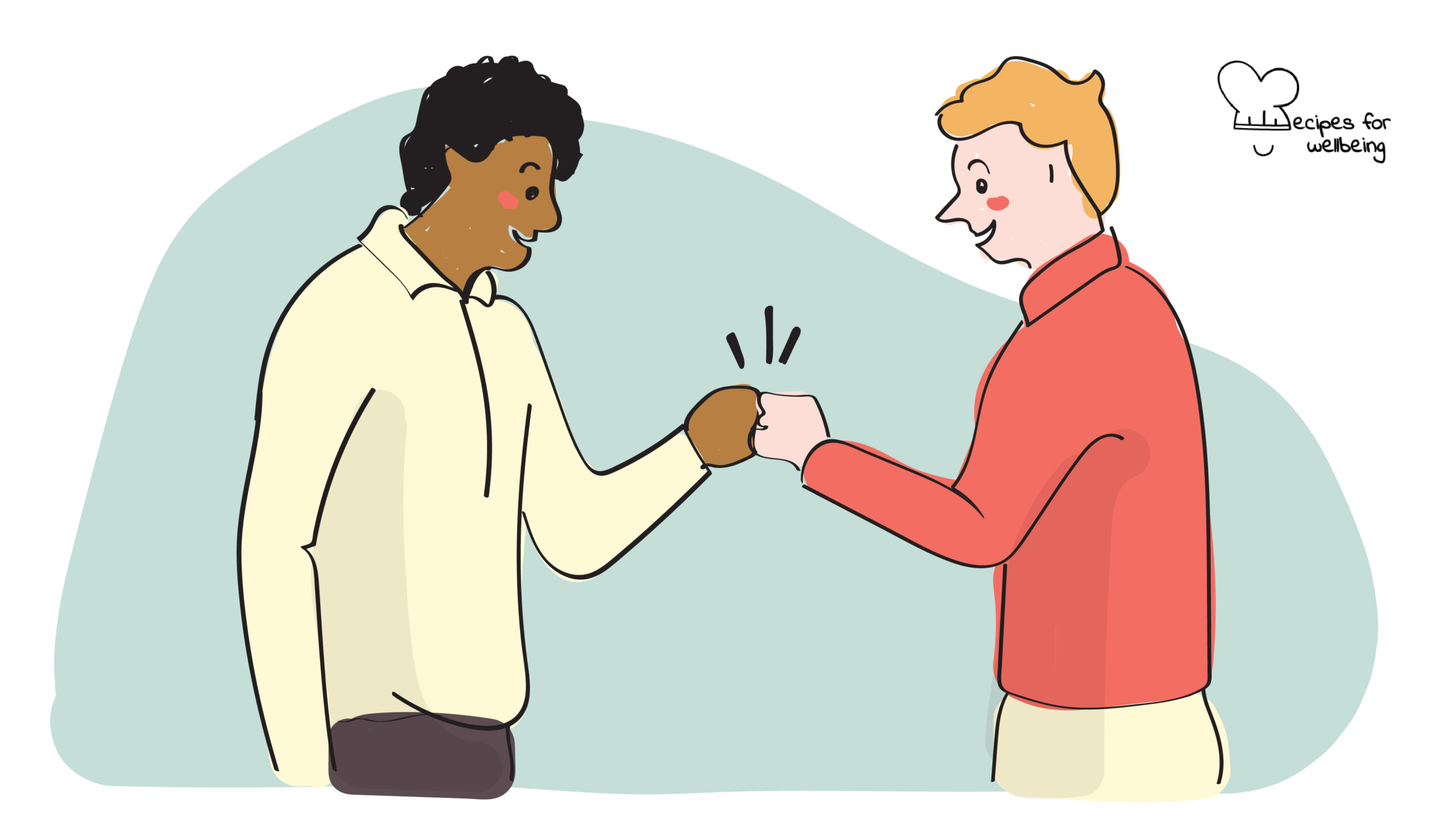
The DO’s and DON’Ts of Allyship
It is certain, in any case, that ignorance, allied with power, is the most ferocious enemy justice can have. ―James Baldwin
👥 Serves: 1 person
🎚 Difficulty: Medium
⏳ Total time: Ongoing
🥣 Ingredients: Self-awareness, discomfortability
🤓 Wholebeing Domains: Community, Liberatory Learning
💪 Wholebeing Skills: Accountability, Allyship, Fairness, Holding space, Liberation, Reflection, Relating to Others

The DO’s and DON’Ts of Allyship
📝 Description
DOs and DON’Ts for white people wishing to become anti-racist allies for BIPOC.
Racism is not a black problem, but a white one. Until white people recognise their white privilege (with its inherent white fragility) and the impact of white supremacy on systems of oppression, it will be difficult to adequately address and overcome institutionalised and structural racism. Mary-Frances Winter’s book Black Fatigue – How Racism Erodes the Mind, Body, and Spirit is a much-needed guide to raise awareness of black fatigue and racism, to educate white people on their white privilege, and to encourage positive actions for change for individuals, organisations, and communities.
Winter defines “black fatigue” as “repeated variations of stress that result in extreme exhaustion and cause mental, physical, and spiritual maladies that are passed down from generation to generation.” And science has proved that racism can be a direct cause of physiological and psychological maladies. As racism happens on multiple levels – interpersonal, internalised, institutionalised, and structural – different strategies are needed from all groups to tackle it. The following recipe provides a list of DOs and DON’Ts for white people to become anti-racist allies for BIPOC (Black, Indigenous, and Other People of Color), shared by Winter in her book.
If you are interested in exploring other recipes on this theme, check out “Including and empowering women of colour at work” and “Stopping micro-aggressions for women of colour in employment”.
👣 Steps
Step 1 – DO’s
- Do be open to listening.
- Do be aware of your implicit biases.
- Do your research to learn more about the history of the struggle in which you are participating.
- Do the inner work to figure out a way to acknowledge how you participate in oppressive systems.
- Do the outer work and figure out how to change the oppressive systems.
- Do amplify (online and when physically present) the voices of those without your privilege.
- Do learn how to listen and accept criticism with grace, even if it’s uncomfortable.
Step 2 – DON’Ts
- Do not expect to be taught or shown. Take it upon yourself to use the tools around you to learn and answer your questions.
- Do not participate in the gold medal in “Oppression Olympics” (you don’t need to compare how your struggle is just as bad).
- Do not behave as though you know best.
- Do not take credit for the labour of those who are marginalised and did the work before you stepped into the picture.
- Do not assume that every member of an underinvested group feels oppressed.

